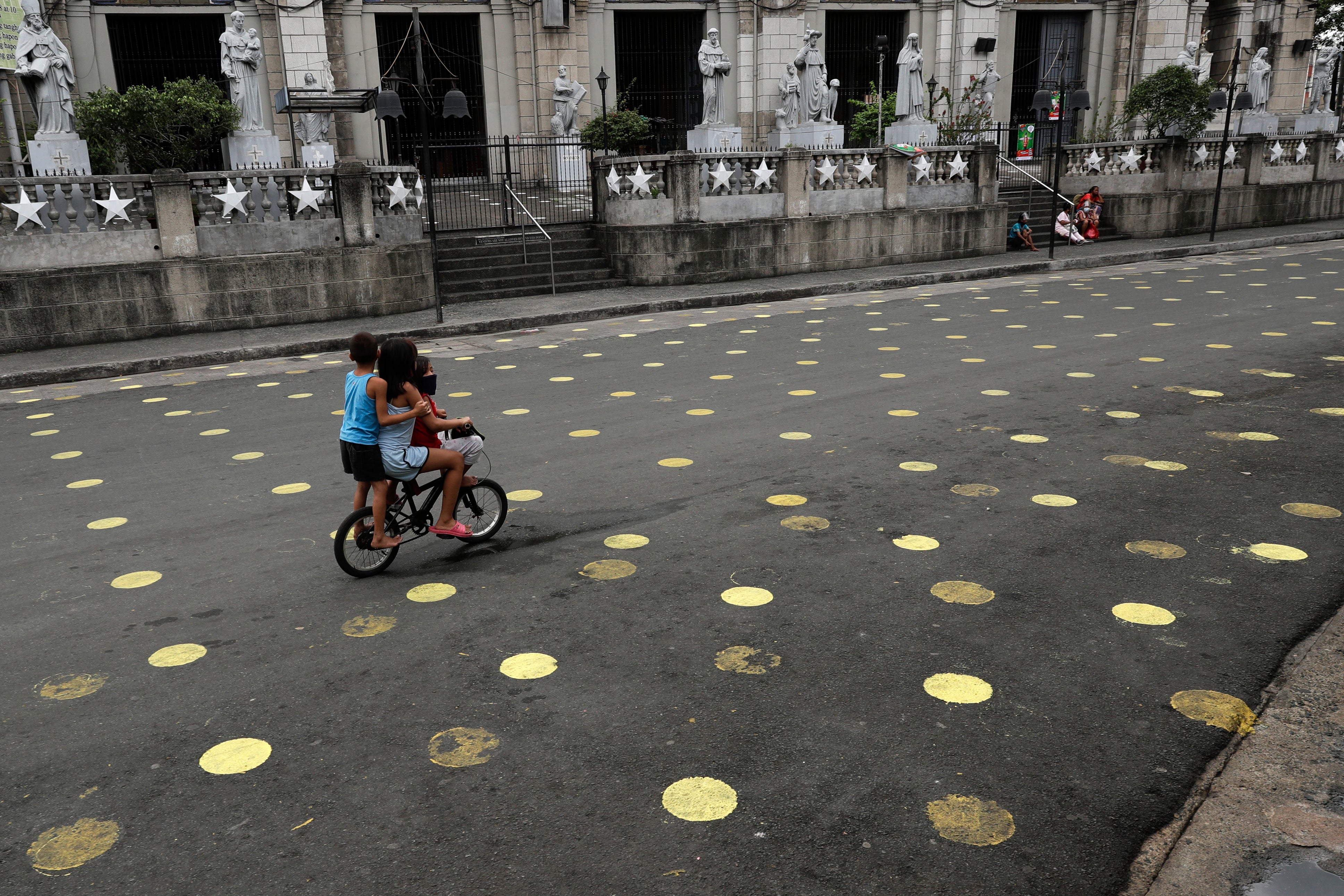Asia Today: Philippine cases hit 500K amid vaccine struggles
Coronavirus infections in the Philippines have surged past 500,000 in a new bleak milestone with the government facing criticism for failing to immediately launch a vaccination program amid a global scramble for COVID-19 vaccines

Your support helps us to tell the story
From reproductive rights to climate change to Big Tech, The Independent is on the ground when the story is developing. Whether it's investigating the financials of Elon Musk's pro-Trump PAC or producing our latest documentary, 'The A Word', which shines a light on the American women fighting for reproductive rights, we know how important it is to parse out the facts from the messaging.
At such a critical moment in US history, we need reporters on the ground. Your donation allows us to keep sending journalists to speak to both sides of the story.
The Independent is trusted by Americans across the entire political spectrum. And unlike many other quality news outlets, we choose not to lock Americans out of our reporting and analysis with paywalls. We believe quality journalism should be available to everyone, paid for by those who can afford it.
Your support makes all the difference.Coronavirus infections in the Philippines have surged past 500,000 in a new bleak milestone with the government facing criticism for failing to immediately launch a vaccination program amid a global scramble for COVID-19 vaccines.
The Department of Health reported 1,895 new infections Sunday, bringing confirmed coronavirus cases in the country to 500,577, the second highest in Southeast Asia. There have been at least 9,895 deaths.
The Philippines has been negotiating with seven Western and Chinese companies to secure 148 million doses of COVID-19 vaccine but the effort has been fraught with uncertainties and confusion. About 50,000 doses from China-based Sinovac Biotech Ltd. may arrive later next month followed by much larger shipments, according to the government, but concerns have been raised over its efficacy.
President Rodrigo Duterte says securing the vaccines has been difficult because wealthy nations have secured massive doses for their citizens first.
Duterte’s elite guards have acknowledged they have been inoculated with a still-unauthorized COVID-19 vaccine partly to ensure that they would not infect the 75-year-old president. The disclosure set off a flurry of criticism, including from senators, who moved to investigate the illegal vaccinations of the presidential guards, but Duterte ordered his guards not to appear before the Senate.
In other developments in the Asia-Pacific region:
— A Chinese province grappling with a spike in coronavirus cases is reinstating tight restrictions on weddings, funerals and other family gatherings, threatening violators with criminal charges. The notice from the high court in Hebei province did not give specifics, but said all types of social gatherings were now being regulated to prevent further spread of the virus. Hebei has had one of China’s most serious outbreaks in months that comes amid measures to curb the further spread during February’s Lunar New Year holiday. Authorities have called on citizens not to travel, ordered schools closed a week early and conducted testing on a massive scale. Hebei recorded another 54 cases over the previous 24 hours, the National Health Commission said on Monday, while the northern province of Jilin reported 30 cases and Heilongjiang further north reported seven. Beijing had two new cases and most buildings and housing compounds now require proof of a negative coronavirus test for entry.